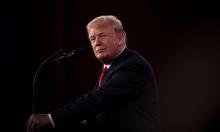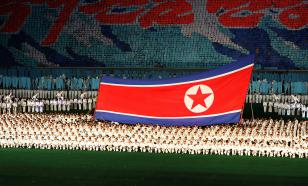USA continues to lose new and staunch allies in the world
In addition to those countries situated thousands of miles away from the US coastline, anti-American sentiments have been growing in Latin American

Shortly after 9/11 terrorist attacks in 2001 US President George W. Bush called upon all nations of the world to decide if they were with or against the USA. Bush repeated his motto four years later at the recent UN General Assembly. The president expanded his statement with a need to join the coalition to spread democracy in the world because the USA could not continue waging the war on terror alone. Instead, George W. Bush had to deal with incomprehension and even protests against Washington's future intentions from both temporal and staunch allies. 
Such sentiments became especially explicit as far as USA's views about Iran and Iraq are concerned. Russia, China and India expressed their protests against Washington's war plans. According to the New York Times, China and India experience a growing need in oil from the Middle East. Russia used to have multi-billion contracts with Iraq, and still continues the construction of a nuclear power plant in Iran. The EU's point of view does not coincide with the opinion of the US administration either: France, Germany and several other members of the European Union did not deploy their troops in Iraq. As for Iran, European leaders attempted to become mediators between Iran and the USA to try to convince Iran of the need to freeze the nuclear program. To crown it all, such irreconcilable rivals as Pakistan and India stood up against the USA's plans in Iran too.
Russia and China have other reasons to be concerned about US-led policies. American officials do not conceal their activities to export so-called color revolutions, whereas Russia and China are the two major candidates where those revolutions occur time and again. Furthermore, the USA openly supports Taiwanese separatists and even Chechen terrorists. It goes without saying that neither Moscow nor Beijing may thank the USA for it especially when the latter takes efforts to increase the number of military bases in Central Asia. To crown it all, the USA turns a blind eye on Japan's endeavor to retrieve the status of a strong military power. This aspect scares off not only Russia and China, but also such a reliable ally as South Korea. India treats the USA rather suspiciously as well: the official Delhi understands that George W. Bush considers Pakistan to be a central ally of the USA outside NATO.
In addition to those countries situated thousands of miles away from the US coastline, anti-American sentiments have been growing in Latin American states as well. Hugo Chavez, the President of oil-rich Venezuela, suggested the UN Headquarters should be removed from New York. Other more moderate leaders from the region's largest countries such as Brazil, Mexico and Argentina support Chavez's ideas and do not rush to give a positive answer to the establishment of the free trade zone in the Western hemisphere from Chile to Canada. The growing giant states, especially Brazil, want to play an independent role in world politics and prefer to back up the idea of an international union to be formed to the south of the USA.
Aside from Iraq, the European Union has other points to disagree with Washington's views. Economic conflicts between Europe and the USA have become rather frequent, when the USA introduced extra duties on the import of certain groups of European goods. To crown it all, the USA vehemently rejects the Kyoto Protocol, whereas all European states ratified the document. It is worthy of note that the USA's closest neighboring state in the north, Canada, disagrees with the US administration more and more frequently. Japan continues to act more independently too and has already become one of the central economic rivals for the USA and is about to accomplish the same in politics.
As a result, one may come to conclusion that the USA has just a few staunch allies: Great Britain, Australia and several countries of Eastern Europe. Most likely, Britain and Australia follow the USA on account of the common Anglo-Saxon solidarity. Nevertheless, the international community is quite concerned about Tony Blair's and John Howard readiness to act like George W. Bush's subordinate officials.
The countries of Eastern Europe, except for Poland and Romania to a certain extent, are more of a burden for the USA, or the “consumers of security” as Russian Defense Minister Sergei Ivanov put it. There are certain political forces in the Czech Republic, in Poland and Hungary, which pay more priority to France and Germany. The three Baltic states of Latvia, Lithuania and Estonia as well as the post-Soviet republic of Georgia can be referred to as the only unconditional allies of the USA in Europe. One may thus infer that the USA may soon find itself alone in the world, although victims of US-led bombings will not feel happier because of it.
Subscribe to Pravda.Ru Telegram channel, Facebook, RSS!




